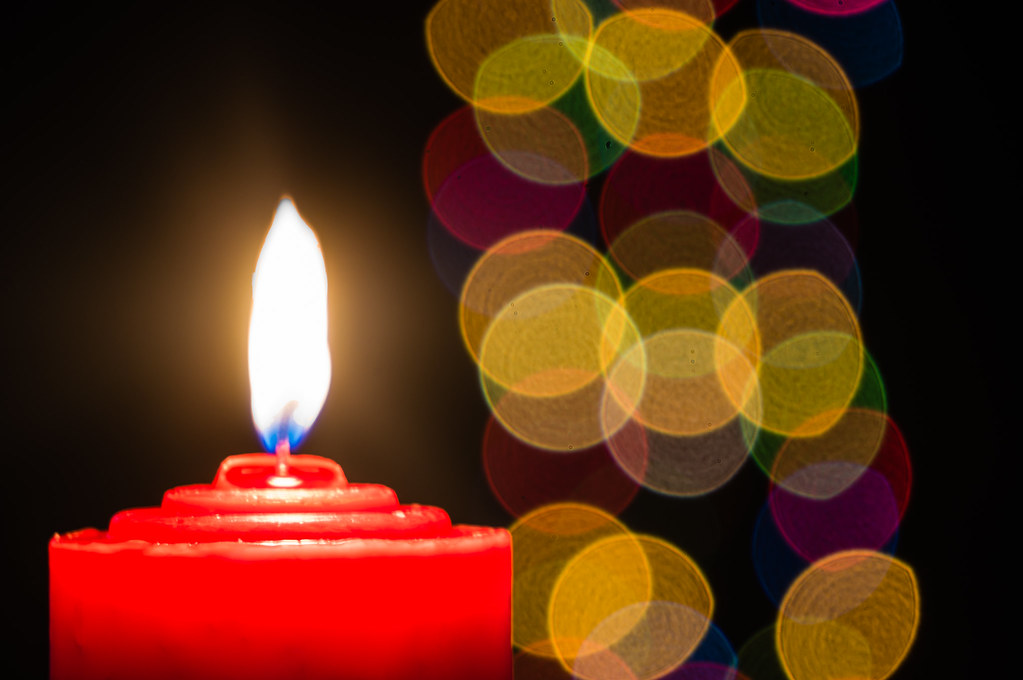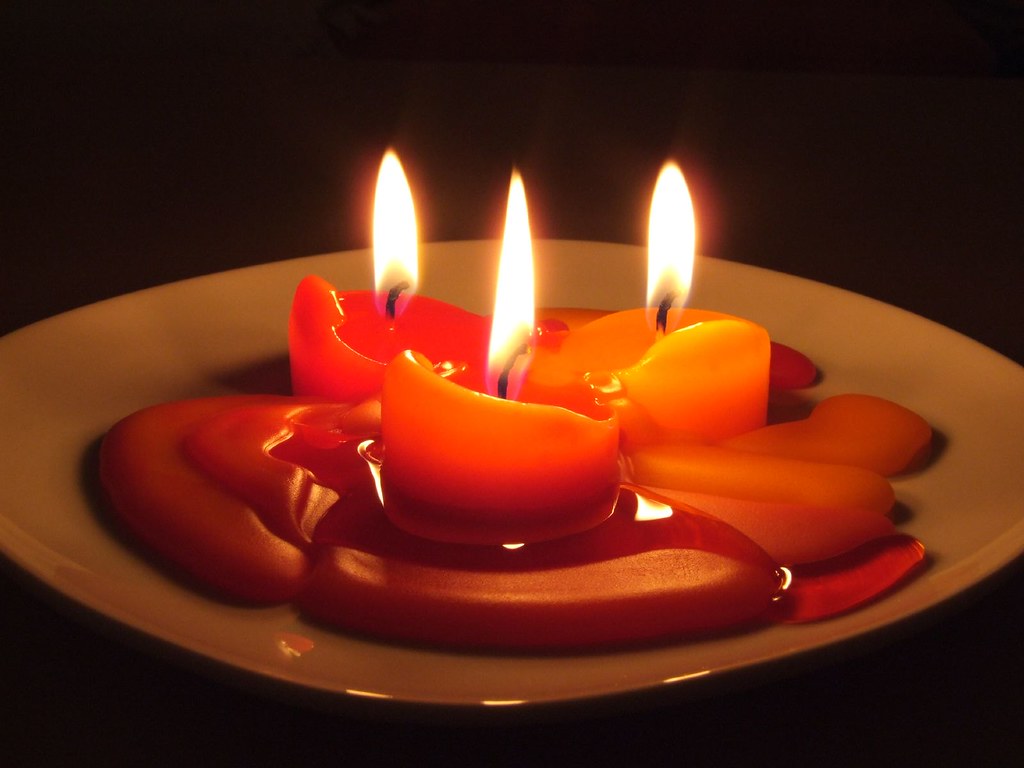
It might seem excessive for me to post more than one article about Imbolc experiences in a single week. But Imbolc has intersected with my life in many interesting ways. Three days after the “official” days of Imbolc, I am planning on doing a quiet ceremony with my ancestors and the deities that I work with. This is partially because I don’t really have the energy to do the celebration proper justice during the week, and partially because today I can do both Imbolc and the full moon at the same time, as the full moon hits today at 12:28 pm my time. But as part of this celebration, I thought it would be worthwhile to do a more personal post about the holiday and what it means to me, personally.
More than one holiday to celebrate joy
One thing that makes Imbolc experiences fascinating to me is that it is the first sabbat on the Wheel of the Year after the Winter Solstice. Growing up in Western society, it feels like our culture puts all of its spiritual energies into Christmas. We get roughly one month where we talk about peace on Earth and goodwill to all, and then it’s back to the grind the remaining eleven months of the year. Plus December is its own grind with peak retail season and travel headaches and making sure that every item on the Christmas holiday to-do list is crossed off. Then the New Year kicks off with cardboard hats, plastic noisemakers and a hangover. At this point the Western world seems to have blown its spiritual wad for the next eleven months. And without fanfare, we drag ourselves back into the grind a day or two later.
Christianity itself isn’t necessarily to blame for what feels like an eleven-month spiritual drought. Christianity has historically had many, many celebrations throughout the year. No, it’s the wheels of commerce and our busy lives that have separated us from the rich spiritual heritage to be found in many religions around the world.
So the Imbolc experience is special for me in that it interrupts the belief that we live in a desert devoid of spiritual celebration eleven months of the year. It’s the first holiday after the Christmas/Winter Solstice season and the first reminder that the Earth herself gives us reason to celebrate year-round. And as I said in the previous article, it is a reminder to continue to honor the cycles of the Earth and reminding us that there is much to celebrate throughout the year.
In addition to this, Imbolc has other special meanings to me.
Discovery and initiation
The year 1991 was a difficult year for me in that I was going through some very difficult personal transitions. I had a new job after a grueling, spirit-grinding job search. While my new job offered a great opportunity, I also felt like I couldn’t be myself. I’d spent the previous year in nature, but was struggling to transition to an urban, hustle and bustle world. Then one day in August I had a sudden transformative experience. A rush of wind and some rustling leaves called me outdoors, and suddenly felt the need to celebrate this greeting from Nature.
Immediately afterwards, I began to look for Pagan organizations in the area. There was one where I hit it off well with the priestess and other members of the group. I and three others went through several months of training with this Wiccan priestess. We learned skills such as how to invoke the quarters and the elements. It culminated with an initiation celebration for Imbolc in 1992. So that Imbolc ended up being a culmination of my spiritual awakening.
Over the years, however, there was a lot that I would find wanting in Wicca and the local Pagan community. I ended up drifting away, and spent a number of years in other paths. These paths included the Baha’i Faith and anpther organization I would best describe as “Messianic Shintoism.” Then I spent a few years as “spiritual but not religious.”
Rediscovery and rededication
Another difficult year for me was 2019. An intentional community that I’d spent years trying to help develop crumbled in just a few months. The level of manipulation, gaslighting, verbal abuse, and actual threats was more than any human should reasonably have to put up with. I retreated to a tiny efficiency apartment. I was also dealing with career frustrations and struggling to pay the bills. I looked forward to that Christmas being a vacation for me. But as 2020 began, I ended up getting sick a few days into that year, and I realized that I still felt burnt out after vacation.
Being sick that evening, I resigned myself to relaxing. I was listening to Scottish Gaelic folk singer Julie Fowlis. My ancestry is heavily Scottish, including the historically Gaelic areas of northwest Scotland. In listening to this music, I suddenly felt a calling to Paganism again–this time from the Gaelic traditions. (Months later I learned that song I loved the most, “Hug Air a’ Bhonaid Mhoir,” was actually a song about a Beltane.) This time, I felt more motivated to develop my own practice rather than join another Pagan group. I began to do a lot of research online, and began to gather items for an altar. This culminated in an Imbolc ritual.
So once again, Imbolc served as a milestone holiday. Imbolc, for me is not only a reminder of these milestones, but a reminder that the joy we associate with Christmas can be ours year-round. Imbolc may occur on what is often the bitterest cold time of the year (as was true this past week). But we are made aware of the stirrings of life under the snow, and the promise that the snow will indeed melt. And that Earth will reveal her beauty and bounty in the months to come.

